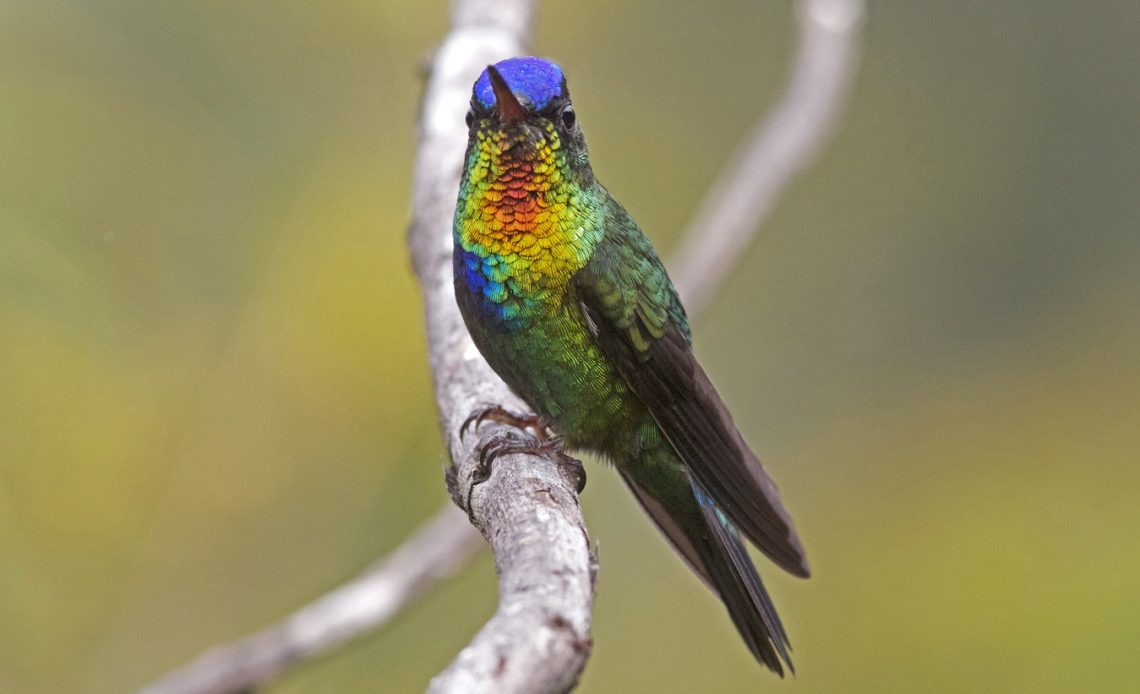

We’re here to help! Wild Yards is a completely free website that is 100% dedicated to helping you create a wildlife-friendly, sustainable yard. Read more
WildYards is reader-supported. When you buy a product through a link on our site, we may earn a comission. Every product is independently selected by our (obsessive) editors and our reviews are unbiased and objective. Read more about our mission or our privacy policy.
Hummingbirds have an immense need for calories just to keep on hovering! You’re likely to find them feasting on all kinds of garden snacks, though they mainly prefer to hunt out nectar from specific types of flowers. But, what about fruit and vegetables? Do hummingbirds eat tomatoes, for example?
Hummingbirds aren’t typically known to eat tomatoes. Some anecdotal evidence suggests they may attack vines occasionally, but it’s rare to see them eating the fruit. They may use tomatoes to find other types of live snacks in your yard.
Why don’t hummingbirds eat tomatoes?
There’s no evidence to suggest hummingbirds won’t eat tomatoes – they simply prefer other food sources. Moreover, there’s not enough evidence to suggest why hummingbirds might avoid tomatoes altogether. They have evolved to find nutrition from other sources – such as protein from arthropods.
Tomatoes attract a wide array of bugs, meaning a vine or two can provide an excellent feeding ground for the hummingbird. It’s an excellent explanation for why you may find hummingbirds fluttering around your tomato plants without them ever eating the fruit.
Tomatoes are particularly infamous for attracting aphids. Aphids are highly destructive, winged insects that can make a light meal of vegetable and fruit crops. Thankfully, the hummingbird readily feasts on aphids, meaning if you attract them to your yard, you have an excellent security system.
Tomato plants also play host to mites, slugs, and beetles – and hummingbirds are most likely to eat the latter of these pests. Certainly, attracting hummingbirds to your yard can make a more eco-friendly way to protect your crops (without the need for harmful pesticides and other chemicals).
What else do hummingbirds eat?
While hummingbirds will happily eat a variety of arthropods (such as mosquitoes and gnats), you’ll frequently find them beak-deep into colorful flowers.
The hummingbird depends on a diet high in sugar, and nectar provides the levels of carbohydrate these pollinators require to survive. They need to feed almost constantly – and require various sugar sources.
Astoundingly, the average hummingbird needs what would be the human equivalent of 150,000 calories per day! Given that nectar is 50% sucrose, it’s a more reliable source of pure sugar for the birds than tomato plants.
Nectar is sometimes scarce for hummingbirds depending on the season and how flowers grow in a particular area. That’s why many people set up hummingbird feeders in their gardens. These feeders will attract hummingbirds when they are full of sugar water, therefore helping to ‘top up’ their need for nectar.
Flowers hummingbirds love will typically have trumpet-shaped blooms. They’re easier for the pollinators to access with their beaks than flatter-flowered specimens. This may explain why they don’t seek out or feed on tomatoes themselves – they are not as easily accessible to eat from as other plants.
In areas where nectar is otherwise sparse due to an absence of flowers, hummingbirds will fervently hunt for arthropods, particularly in the colder seasons. Into the winter, it’s not unheard of for hummingbirds to dig for spiders if particularly desperate!
Instead of growing tomatoes purely to attract hummingbirds, consider planting an array of flowers they genuinely adore. For example, planting snapdragons, fuchsias, sunflowers, and lantana will ensure your local pollinators have plenty to feed on in your garden.
There are plenty of other flowers hummingbirds love – from perennials to potted blooms – that will add a fantastic visual variety to your yard and keep them well-fed. Don’t rely on tomato plants alone if you want to keep hummingbirds coming back for more.
Are my tomatoes safe from hummingbirds?
Your tomatoes are unlikely to be eaten by hummingbirds – they’re looking for the insects hoping to feed on them. Providing you have various nectar-rich flowers and plants growing elsewhere in your garden, your hummingbirds will have plenty to feed on.
If you want to protect your tomato plants from insects altogether and don’t want to rely on hummingbird security, consider using cages or cones to shield them from access. You should avoid using chemicals – as this will harm other fauna and flora in your garden.
Otherwise, hummingbirds won’t make a meal of your tomatoes – but do provide food for them elsewhere.
